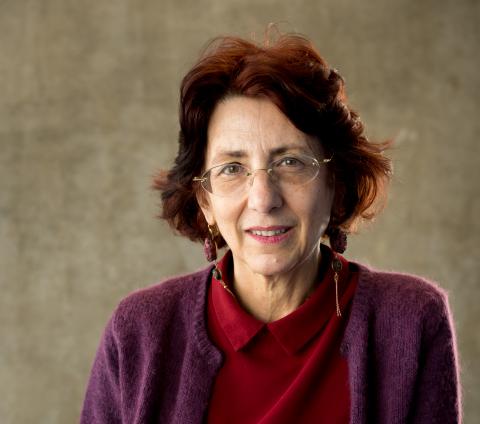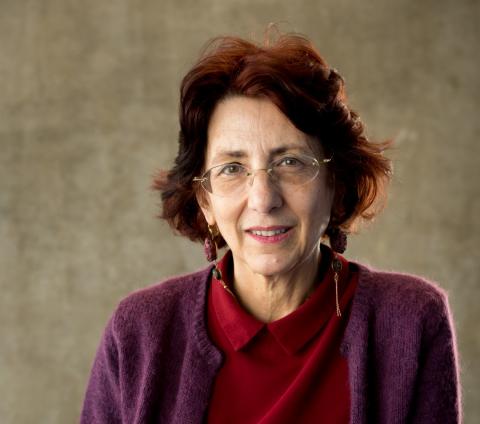
Marie Cornu: protecting cultural heritage
Marie Cornu is a research director at the Institute of Social Sciences of Politics (ISP) and is attached to ENS Paris-Saclay. After a first professional life in the cultural sector, her resumption of studies led her to a second career as a researcher in heritage and cultural law, a field in which she is now a recognized specialist. She has just received the 2019 silver medal from the CNRS.
Marie Cornu joined the Institute of Social Sciences of Politics (ISP - CNRS/ENS Paris-Saclay/Université Paris Nanterre) in 2015 after ten years as the Director of the Centre for Interdisciplinary Studies and Legal Cooperation (CECOJI). Her research applies to all aspects of cultural and heritage law (cultural and scientific, tangible and intangible, natural), an area that emerged in the 1990s and that the researcher has largely contributed to structuring. The 2019 CNRS silver medal that has just been awarded to her is, for her, proof that this field "has its rightful place at the CNRS".
From the cultural centre to the research centre
Marie Cornu’s second career started when she returned to law school in the early 1980s, after her first job in culture. "I wanted to study how the law supports the cultural cause," she says. She defended her thesis in 1994 and was then recruited at the CNRS and joined CECOJI. With Jérôme Fromageau, professor at the Faculty of Sceaux, she created the research group on the law of cultural and natural heritage, and supported the creation of a master's degree in "heritage law" where she taught for 20 years. "We have developed research in law, a little explored field, and shown that it can also be linked to public policy needs. We also work a lot with the Ministry of Culture, which strongly supports all our projects."
Mémoloi, the memory of laws
The researcher initiated and developed Mémoloi, which explores several of the major founding texts of heritage and cultural laws under a dual legal and historical approach. "By returning to the original texts that founded the history of heritage law, we get provided by useful information on the present state of the law." A first book is devoted to the year 1913 and the birth of an important law on historical monuments. A second book studies its evolution until the adoption of the heritage code in... 2004! Other publications are in progress: Law on Archaeology (1941), on Archives (1979) or on Museums (2002).
Who does own the Guérande marshes?
Coordinated by Marie Cornu, the Dictionary of Common Goods (Dictionnaire des biens communs, Puf, 2017) explores the plurality of meanings of "common goods". "Heritage is not reduced to the exclusive relationship of an owner to his property. By its collective nature, heritage property is a common good. This plural notion is a social construct and refers in particular to modes of organization and management of resources of collective interest. "This is particularly the case in the salt marshes of Guérande, where salt workers manage their plots collectively because their functioning depends on a global irrigation system."
Do you speak the law?
As part of an international research group, Marie Cornu also coordinated the Comparative Dictionary of Cultural Heritage Law (Dictionnaire comparé du droit du patrimoine culturel), which compares the concepts and terminology of cultural heritage (archives, museums, archaeology, historical monuments) in six countries, for its first edition. The second edition will bring together a dozen countries. "We have defined and deepened 50 important terms in the structuring of heritage law in Europe."
Marie Cornu is also interested in the relationship between language and law. "These two territories maintain close intimate relationships. Law is fully a language activity. In particular, I work on semantic issues in the law designation process and on the relationship between the way of naming and normative issues."
Digging into the vein of interdisciplinarity
"By working within the Institute of Social Sciences of Politics, the jurist necessarily enriches his approach through contact with political science, sociology of law and history," comments the researcher. This interdisciplinarity is a source of new themes such as authenticity or materiality, that Marie Cornu is digging within Paris-Saclay, in collaboration with several LabEx Patrima member laboratories.

